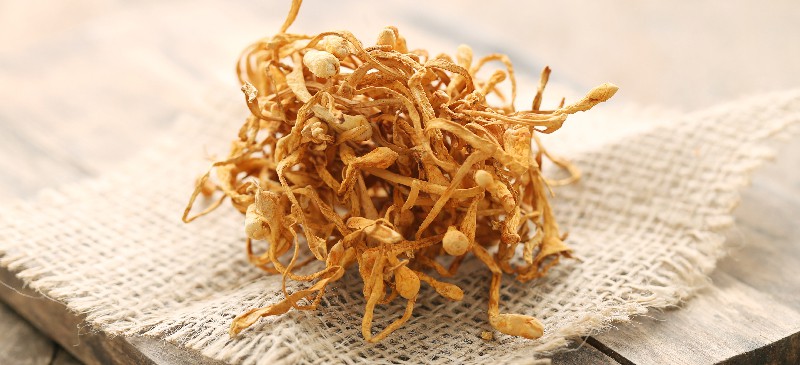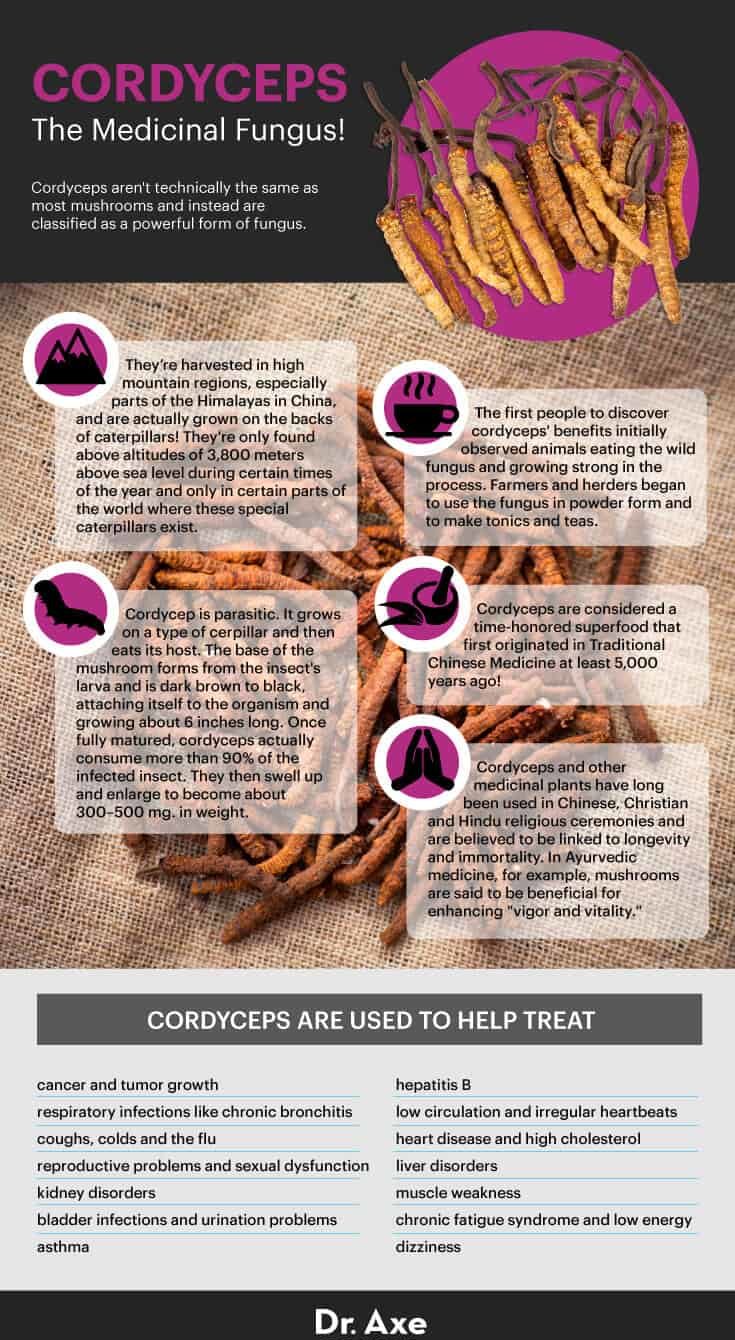This Dr. Axe content is medically reviewed or fact checked to ensure factually accurate information.
With strict editorial sourcing guidelines, we only link to academic research institutions, reputable media sites and, when research is available, medically peer-reviewed studies. Note that the numbers in parentheses (1, 2, etc.) are clickable links to these studies.
The information in our articles is NOT intended to replace a one-on-one relationship with a qualified health care professional and is not intended as medical advice.
This article is based on scientific evidence, written by experts and fact checked by our trained editorial staff. Note that the numbers in parentheses (1, 2, etc.) are clickable links to medically peer-reviewed studies.
Our team includes licensed nutritionists and dietitians, certified health education specialists, as well as certified strength and conditioning specialists, personal trainers and corrective exercise specialists. Our team aims to be not only thorough with its research, but also objective and unbiased.
The information in our articles is NOT intended to replace a one-on-one relationship with a qualified health care professional and is not intended as medical advice.
Cordyceps Benefits for Anti-Aging, Sleep, Exercise Performance & More
May 17, 2023

This medicinal mushroom has been a staple in holistic medicine for centuries and has long been revered for its potent anti-aging, health-promoting properties. In recent years, research on the cordyceps mushroom has turned up even more impressive findings, reporting that this superstar supplement can also enhance athletic performance, promote heart health and decrease inflammation to keep you feeling your best.
Best of all, there’s no need to go mushroom foraging to take advantage of the powerful benefits that the cordyceps mushroom has to offer. Widely available in powder, capsule and tablet form, it’s quick and convenient to reap the rewards of this medicinal mushroom.
Ready to learn more? Keep reading to find out how the cordyceps mushroom can impact your health and why you may want to consider adding it to your daily routine.
What Are Cordyceps?
Prized for their natural ability to fight free radicals, infections and inflammation, these are impressive disease-fighting mushrooms that have been used for centuries to reduce symptoms of respiratory disorders, coughs, colds, liver damage and much more. As a true “superfood,” the cordyceps mushroom can slow the effects of aging and stress, help keep the body free from disease and boost energy levels to keep you going all day long.
Cordyceps fungus is sometimes called the caterpillar fungus. It’s parasitic in nature because it grows on a type of caterpillar and then winds up eating its own host!
The base of the mushroom forms from the insect’s larva and is dark brown to black, attaching itself to the organism and growing about six inches long. Once it fully matures, it actually consumes more than 90 percent of the infected insect.
These shrooms then swell up and enlarge to become about 300–500 milligrams in weight.
The first people to discover the many benefits of cordyceps initially observed animals eating the wild fungus and growing strong in the process. Farmers and herders began to use the fungus in powder form to make tonics and teas.
Some of the first uses for these tonics were increasing milk production and improving reproductive capacity of livestock. Later on, people began drying cordyceps in sunlight to preserve their potent benefits.
It’s believed that the many anti-inflammatory benefits of cordyceps stem from their ability to positively affect the immune system, fighting oxidative stress and stimulating protective cells that keep the body free from mutations and infections. In vitro studies have found that cordyceps can act like natural cancer treatments in some cases, preventing the growth of tumors and cancer cells.
Considered a type of natural “immuno-potentiating drug,” coryceps supplements are often used to enhance immunity and optimize health. They can also help control autoimmune disorders, minimize excessive inflammation and prevent tissue damage while speeding up healing time.
Additionally, research shows that cordyceps can act as mild stimulants or “adaptogen herbs,” fighting stress and fatigue while also naturally increasing energy levels.
Benefits
1. Increases Immune Function
Some studies suggest that consuming cordyceps benefits immune function and can help optimize the health of the cardiovascular, respiratory, endocrine and reproductive systems. This is because they contain anti-inflammatory compounds like polysaccharides, modified nucleosides and cyclosporines.
Taking cordyceps may be especially beneficial in the treatment of inflammatory-related conditions, such as Crohn’s disease, arthritis, leaky gut and asthma. In fact, one animal model conducted by the Chung Shan Medical University Hospital showed that they were effective at reducing inflammation in the airways of mice, potentially aiding in the treatment of asthma.
2. Slows Aging and Promotes Mental Clarity
Cordyceps are jam-packed with antioxidants that can help fight free radical damage, prevent oxidative stress and help slow the signs of aging to optimize your health. Although research on the anti-aging effects of this medicinal mushroom is primarily limited to animal studies, research shows that it can boost brain function, enhance memory and even extend longevity.
For example, one animal model in the journal Phytotherapy Research showed that taking cordyceps extract increased the activity of antioxidants like superoxide dismutase and glutathione peroxidase in the blood. Not only that, but it also helped boost brain power and enhance sexual function in aging rats.
Similarly, another animal study out of China found that administering cordyceps extract to fruit flies significantly prolonged their life spans by blocking oxidative stress to the cells, confirming their potent anti-aging properties.
3. Improves Athletic Performance
A 2010 study published in the Journal of Alternative and Complementary Medicine demonstrated that supplementation with Cs-4 (Cordyceps sinensis) improved exercise performance and contributed to overall markers of wellness in older adults. Considered an energizing adaptogen like other superfood herbs such as maca or cacao, cordyceps are often used to help fight fatigue, treat muscle aches and prevent weakness.
Several studies suggest that they can boost athletic performance — improving physical abilities, endurance and stamina — partially because they boost the body’s supply of ATP, one of the primary sources of energy during exercise. Cordyceps contain adenosine, a type of nucleic acid that is needed to make ATP, an “energy carrier” that is depleted in the muscles during physical activity.

4. Enhances Sexual Function
Traditionally, people of both sexes took tonics made from cordyceps to enhance libido and improve reproductive function. Based on animal models, it appears that cordyceps supplements can help the body utilize oxygen more efficiently and improve blood flow, which is important for physical health and sexual function.
Improved endurance, increased energy and lower levels of inflammation are several other reasons that cordyceps may improve fertility and libido. Thus, they may be used as a natural treatment for infertility as well as a natural remedy for impotence.
5. Regulates Blood Sugar Levels
Two active constituents in cordyceps, d-mannitol cordycepin and 3’-deoxyadenosine, are partially responsible for various physiological actions that help control insulin and blood sugar levels. In animal models, cordyceps supplements have helped combat high blood sugar levels while also reducing insulin levels to protect against insulin resistance.
6. Supports Heart Health
Recent research has found a strong link between cordyceps and heart health, with studies showing that they could help protect the heart against damage and lower cholesterol levels to prevent coronary heart disease. For instance, one animal study in Acta Pharmacologica Sinica showed that cordyceps extract helped reduce damage to the heart and liver in rats with kidney disease.
Plus, other research in animals shows that cordyceps could help lower levels of bad LDL cholesterol to prevent arteriosclerosis, a condition characterized by plaque buildup in the arteries and an increased risk of heart attack and stroke. Other animal models show that they may also reduce high triglycerides, another major risk factor for heart disease.
7. May Help Fight Cancer Cells
Several promising in vitro studies have found that cordyceps could possess powerful anti-cancer properties and may help block the growth and spread of several different types of cancer. In particular, in vitro studies show that cordyceps extract may be effective at reducing the growth of liver, lung and colorectal cancer cells.
However, the anti-cancer effects of cordyceps extend beyond stopping cancer growth. Animal studies also show that these medicinal mushrooms could reduce the risk of side effects caused by cancer treatment, including leukopenia, a condition sometimes caused by chemotherapy or radiation that results in a decrease in the amount of white blood cells in the body and a higher risk of infection and illness.
8. Combats Stress and Supports Mental Health
Research published in journal Molecules examined the many therapeutic effects of these medicinal mushrooms. What researchers found was that cordyceps can act as nutraceuticals that can support mental health by both fighting environmental stress and oxidative stress in the body.
9. Promotes Restful Sleep
A study out of Asia looked at the effects of cordycepin, which naturally occurs in cordyceps, to see if it’d help increase natural sleep in rats. Researchers determined that cordycepin increases nonrapid eye movement sleep in rats.
That’s not all. According to the authors, “… this experiment can provide basic evidence that cordycepin may be helpful for sleep-disturbed subjects.”
Nutrition Facts
The cordyceps mushroom is loaded with a wide array of antioxidants, enzymes and vitamins that contribute to its healing effects. Some of the compounds that have been identified in the cordyceps nutrition profile include:
- Cordycepin
- Cordycepic acid
- N-acetylgalactosamine
- Adenosine
- Ergosterol and ergosteryl esters
- Bioxanthracenes
- Hypoxanthine
- Acid deoxyribonuclease
- Superoxide dismutase
- Protease
- Dipicolinic acid
- Lectin
History
Cordyceps are considered a time-honored superfood that first originated in Traditional Chinese Medicine at least 5,000 years ago. Their medicinal uses were described in old Chinese medical books, and traditional holistic healers have been using them to treat dozens of diseases without the use of chemical medications for generations.
Local folk healers were said to use cordyceps either alone or in combination with other TCM herbal treatments to fight more than 20 different ailments, ranging from bronchitis to heart disease.
Cordyceps and other medicinal plants have long been used in Chinese, Christian and Hindu religious ceremonies and are believed to be linked to longevity and immortality. In Ayurvedic medicine, for example, mushrooms are said to be beneficial for enhancing “vigor and vitality.”
Traditional healers in Sikkim recommended medicinal mushrooms “for all illnesses as a tonic, because they claimed that it improved energy, appetite, stamina, libido, endurance, and sleeping patterns.”
Medicinal mushrooms have been used for thousands of years to treat a wide variety of ailments. Cordyceps mushrooms, in particular, have an extensive history in some parts of Asia and have long been used medicinally in these areas.
Today, they can be found around the world but are especially common in North America, Asia and Europe.
The name “cordyceps” actually comes from the Latin words “cord,” meaning club and “ceps,” meaning head. Cordyceps is actually the name of a genus of fungi, but there are an estimated 400 species within the genus.
Some of the most notable species include Cordyceps sinensis, Cordyceps militaris and Cordyceps ophioglossoides.
Although they have long been known for its healing effects in many forms of traditional medicine, recent research has begun to confirm the health-promoting properties of these powerful mushrooms. In fact, studies show that cordyceps may have anti-cancer, anti-microbial and anti-inflammatory activities and can be beneficial in treating a long list of health concerns.
Cordyceps vs. Reishi vs. Lion’s Mane
Along with other mushrooms like the chaga mushroom and turkey tail mushroom, cordyceps, reishi and lion’s mane are three of the most popular medicinal mushrooms on the market. That said, there are plenty of similarities between these three unique types of mushrooms as well as several things that set them apart.
Reishi mushrooms have been associated with an extensive list of health benefits, ranging from improved liver function to enhanced immunity in human and animal studies. Available in extract, capsule, tablet and powder form, reishi mushrooms are often used as a natural remedy to help boost health and increase antioxidant intake.
While both reishi and cordyceps mushrooms are most commonly found in supplement form, lion’s mane is an edible mushroom that can be purchased from specialty grocery stores and used to bump up the benefits of your favorite recipes. Like other types of medicinal mushrooms, lion’s mane mushroom is high in inflammation-busting antioxidants and can help maximize immunity to support better health.
It’s also been shown to improve brain function and protect against stomach ulcers in animal models.
Cordyceps vs. Ginseng
Both used throughout history for their medicinal properties, ginseng and cordyceps are two powerful adaptogens that can bring big benefits when it comes to your health.
Like cordyceps, ginseng has been linked to improved immunity, reduced cancer cell growth, better blood sugar levels and enhanced sexual function. There are several different types of ginseng, each offering a unique set of health benefits.
However, there are several differences that set these two superfoods apart. While cordyceps are a type of mushroom that have long been harvested in China, ginseng is a root belonging to the Panax genus of plants.
Because they belong to entirely different families of plants, ginseng contains different nutrients and chemical components, including ginsenosides, which are the active compound in ginseng that are responsible for many of its health benefits.
Additionally, although there is definitely some overlap in terms of health benefits, ginseng has been linked to other health-promoting properties, including relief from menopause symptoms and increased weight loss in some human and animal studies.
How to Use
For many decades, cordyceps fungus was difficult to obtain, expensive and not widely used. Today, wild cordyceps are still not easy to come by, but luckily scientists have figured out how to reproduce them synthetically in the lab, making them much more widely available to the public.
Supplements are now available in most health food stores and online retailers at much more affordable prices and appear to offer the same benefits as the wild varieties. Another advantage of growing controlled species of cordyceps fungi is being able to control contamination, such as harmful bacteria and heavy metals.
Cordyceps are mostly found in capsule, powder and tablet form. Capsules or tablets can be a quick and convenient way to get in your daily dose, while opting for cordyceps powder can also allow you to experiment and add cordyceps into some of your favorite recipes.
Cordyceps extract and powder are most often added to beverages like tea, coffee, smoothies and shakes, but with a little creativity, the potential cordyceps uses are limitless.
It’s now possible to purchase cordyceps capsules, powders and tablets from most health food stores and online. Many people take them by mouth, but some even like to open the capsules and use the powder in teas, soups and stews, like how they were traditionally taken in China for hundreds of years.
Cordyceps dosage depends on the reason they are being used, but most studies in humans have used 1,000–3,000 milligrams per day, which doesn’t seem to be associated with any common side effects. Follow the dosage advice listed on your cordyceps supplement, or speak with an herbalist about treating a specific condition.
You don’t necessarily need to take them every day if you’re only trying to prevent future illnesses and boost your immune system. In that case, once or twice a week with a lower dose works well.
Recipes
There are plenty of delicious ways to add cordyceps into your routine and take advantage of the unique health benefits that they have to offer. Here are a few tasty recipes to get you started:
- Cinnamon Vanilla Cordyceps Latte
- Cordyceps Broth
- Power-Up Morning Cordyceps Tonic
- Chocolate Raspberry Bars with Cordyceps
- Cordyceps Flower Chicken Soup
Risks and Side Effects
Cordyceps are considered safe for most people, but there are some potential cordyceps side effects and interactions to be aware of, especially if you have any underlying health conditions or are taking certain medications.
If you’re pregnant or breast-feeding, you likely want to steer clear of taking cordyceps or check with your doctor before starting supplementation. Unfortunately, cordyceps human studies looking at the effects on pregnancy are lacking, so stay on the safe side to avoid negative side effects.
For anyone with a known autoimmune disease, such as lupus, rheumatoid arthritis or multiple sclerosis, some doctors warn that cordyceps might worsen the problem. Because they stimulate the immune system, cordyceps may interfere with medications for these diseases or over-activate certain immune cells, so talk to your doctor before taking them.
The same warning goes for anyone with a known bleeding or blood clot disorder since medical mushrooms can sometimes interfere with proper blood clotting. You also should not take cordyceps two weeks before any scheduled surgery, due to the influence on blood clotting.
Final Thoughts
- Cordyceps are a type of mushroom that have been used medicinally for centuries and are associated with many beneficial effects on health.
- Some of the potential cordyceps benefits include improved immunity and heart health, slowed aging, enhanced athletic performance and sexual function, better blood sugar levels, and protection against cancer cell growth and development.
- Available primarily in capsule, tablet and powder form, the exact mushroom dosage can vary based on the specific type of supplement you’re using, but most studies have used between 1,000–3,000 milligrams daily.
- Although safe for use in most people, people with autoimmune disorders and blood clot disorders should discuss with their doctors before starting supplementation. Additionally, because cordyceps fungus human studies looking at the effects on pregnancy are limited, women who are pregnant or breastfeeding should limit use as well.
- When paired with a nutritious diet, active lifestyle and a rotation of other medicinal mushrooms, adding these mushrooms to your routine can bring some serious health benefits in the long run.










